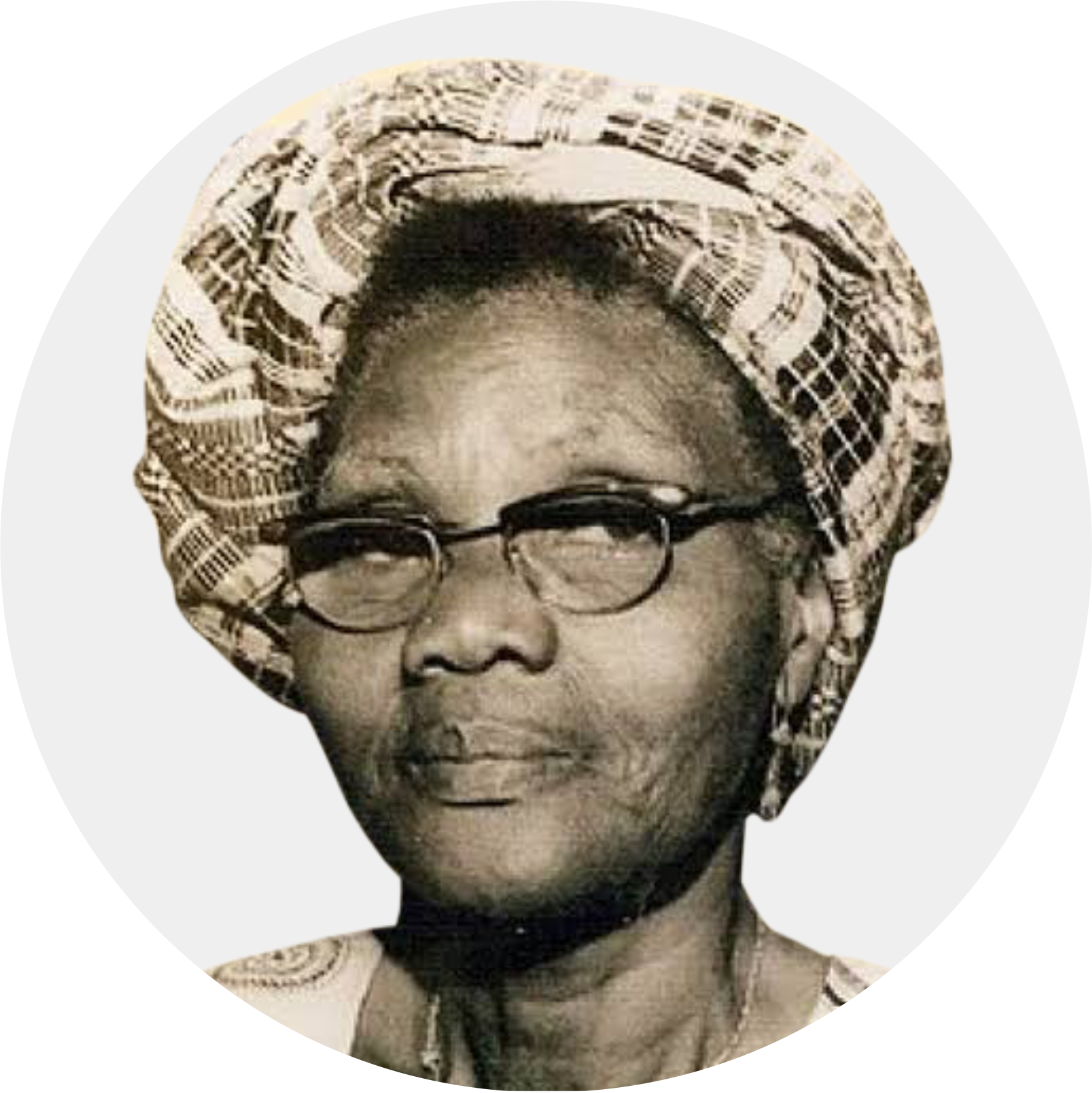Summary of personalities

Funmilayo Ransome-Kuti
Funmilayo Ransome-Kuti (1900 – 1978) was a Nigerian educator, political campaigner, suffragist, and women’s rights activist. During the 1940s, Funmilayo Ransome-Kuti established the Abeokuta Women’s Union and fought for women’s rights, demanding better representation of women in local governing bodies and an end to unfair taxes on market women. Described by media as the “Lioness of Lisabi”, she led marches and protests of up to 10,000 women, forcing the ruling Alake to temporarily abdicate his throne in 1949.
She took part in the Nigerian independence movement, attending conferences and joining overseas delegations to discuss proposed national constitutions. She spearheading the creation of the Nigerian Women’s Union and the Federation of Nigerian Women’s Societies, and advocated for Nigerian women’s right to vote and became a noted member of international peace and women’s rights movements. In May 1949, Ransome-Kuti proposed the creation of the Nigerian Women’s Union (NWU) in order to better support women’s rights and enfranchisement across the country.
Interesting facts about Funmilayo Ransome-Kuti
- During the period of the Cold War between the West the former USSR, and before the independence of Nigeria, Funmilayo Kuti traveled widely around the world, and this got the Nigerian as well as British and American Governments angry because they believed that she maintains contacts with the Eastern Bloc, as she traveled a lot to the former USSR, Hungary and China where she met Mao Zedong. In 1956, the government refused to renew her passport because it was assumed that she intended to influence the Nigerian women with communist ideas and policies. Almost at the same time, the United States refused her visa because the American government alleged that she was a communist.
